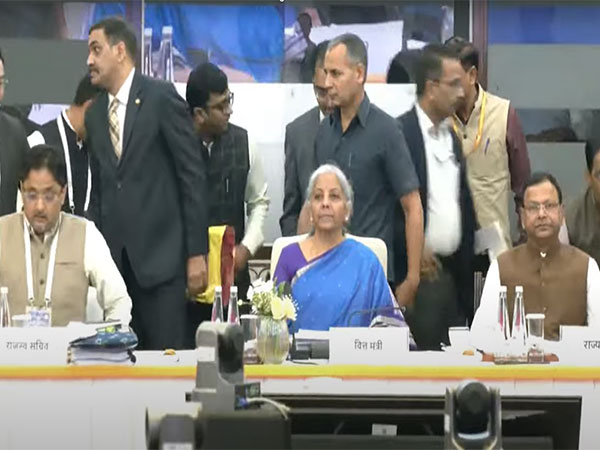New Delhi [India]: The 56th Goods and Services Tax (GST) Council meeting is underway in the national capital, led by Finance Minister Nirmala Sitharaman.
The two-day meeting, being held on September 3 and 4, is expected to bring significant changes to India’s indirect tax structure, with discussions centred around rationalising and reducing the number of GST slabs.
According to government sources, the proposal under consideration aims to eliminate the 12 per cent and 28 per cent brackets. Instead, most goods would be placed under either a 5 per cent or an 18 per cent slab. At present, there are four GST rate slabs, which are 5 per cent, 12 per cent, 18 per cent, and 28 per cent.
Nearly 99 per cent of items currently taxed at 12 per cent are likely to be moved into the 5 per cent slab, while around 90 per cent of items in the 28 per cent category could shift to the 18 per cent slab. Goods considered “sin” products would continue to draw a higher 40 per cent levy.
As per the proposals approved by the Group of Ministers (GoM) last month, almost all items in the 28 per cent slab, barring sin goods, would move to the 18 per cent slab, and those in the 12 per cent slab would move to the 5 per cent slab. Another slab of 40 per cent would exist, which will be levied on 6 to 7 items, largely sin and demerit goods.
The relevance of the meeting grew after Prime Minister Narendra Modi, in his Independence Day address, hinted at a “big reform of GST,” calling it a major step ahead of the festival season. He had said people could expect a “very big gift” during Diwali.
The Council is also likely to discuss a short-term compensation mechanism for states, which will lose revenue due to rate cuts. However, the compensation cess structure, as it exists today, is unlikely to be extended.
The compensation cess, introduced in July 2017, was designed to make up for state revenue losses during the initial five years of GST implementation. The GST (Compensation to States) Act, 2017, was enacted to ensure that the Centre should provide compensation to states for a period of five years from the implementation of GST on July 1, 2017, to make sure that each state’s tax revenue grows by 14 per cent annually over the base year of 2015-16.
The Council’s discussions are expected to continue tomorrow, with decisions likely to be announced after deliberations conclude. (ANI)


















